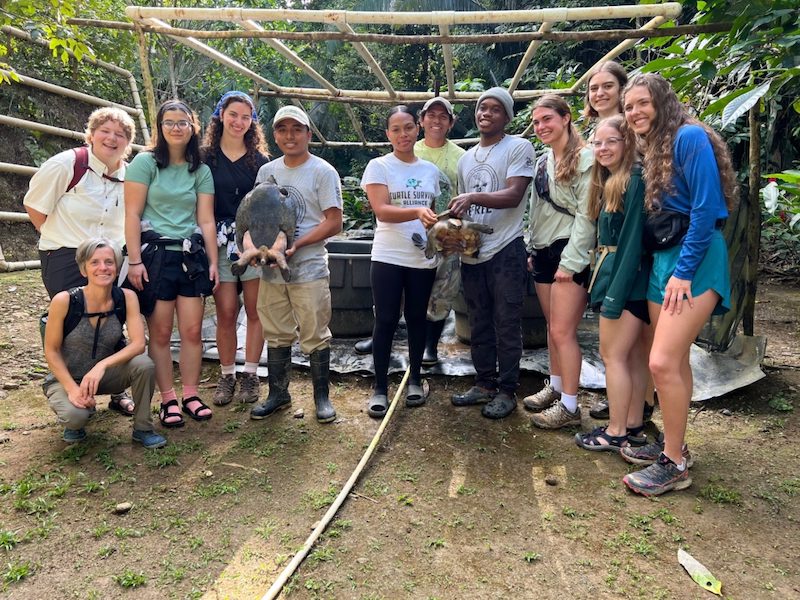Field Course
Creative Courses in the Jungle
The BFREE field station serves as an oasis optimal for artistic pursuit, retreat, and growth. By Molly McFadden January 2023 I spent two weeks at BFREE as an undergraduate student while completing a course called Travel Writing through Bethel University. When I registered for the course I knew almost nothing about the country of Belize…
Read MoreCongratulations Drs. James Rotenberg and Vibeke Olson on your retirement!
Congratulations to long-time BFREE supporters, field course leaders, researchers, and adventurers, Drs. Jamie Rotenberg and Vibeke Olson on their recent retirement from the University of North Carolina Wilmington. Extraordinary husband and wife team, Jamie and Vibeke, have been visiting BFREE for nearly two decades as professors bringing field courses, as researchers, with their graduate students,…
Read MoreKicking off the Field Season
The beginning of the year means the start of a brand new field season for BFREE. Kutztown University helped kick-off 2020 with an incredible group of 15 students and two instructors ready to embark on a two-week adventure in Belize. The group arrived on New Year’s Eve and spent the evening with Ernesto and Aurora Saqui in Maya Center…
Read MoreBirds, Chocolate, Forests, and Allegheny College
Allegheny College students pose for a photo at BFREE during the Birds, Chocolate, Forest Field Course in May 2019. Written By, Beth Choate, Ph.D.Associate Professor, Environmental Science and SustainabilityAllegheny College BFREE’s Birds, Chocolate and Forests course provided students with a real life example of the complexities of conservation within the rainforests of southern Belize. Through…
Read More

